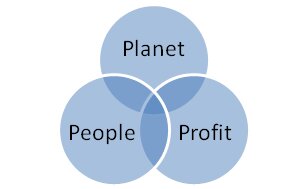- Filter By :
- Theoretical Questions
- Case Studies
-
Q. The needs of development must be balanced with that of climate justice. In this context, explain the relevance of climate justice in the present times. (250 words)
26 Sep, 2019 GS Paper 4 Theoretical QuestionsApproach
- Mention the recent events which have put renewed focus on the concept of climate justice.
- Explain the factors which determine the relevance of climate justice in the present times.
- Conclude by mentioning about the need to shift to sustainable development.
Introduction
#FridaysForFuture movement inspired by 16-year-old Swedish student and climate activist Greta Thunberg saw participation from youth and school children of more than 123 countries around the world. The basic demand being that governments should reduce carbon emissions before it’s too late. This has renewed the debate of development v/s environmental protection and the need for climate justice.
Climate justice is a term used for framing global warming as an ethical and political issue, rather than one that is purely environmental or physical in nature.
Body
Relevance of Climate Justice in present times
- Development vs. environment degradation: Measures taken for development largely have negative impact on the environment. Climate change negatively impacts rainfall patterns, increases food security risks in vulnerable countries, cities sinking due to rising sea levels, etc. IPCC reports have given strict warning about the devastating impacts of rising global temperature beyond 1.5 degree Celsius.
- Prioritising investment: Developing countries particularly lack funds for investment for implementing climate change actions. Funds generated through Clean Development Mechanism (CDM) are inadequate to handle the current crisis. Climate justice provides for the possibilities to prioritise investment around the vulnerabilities of the communities worst affected by climate change.
- Lobbying by businesses and industrial groups: Oil based companies and big industrialists in fossil fuel based businesses pressurize governments not to take decisions for quick transition to renewable based solutions. Climate justice shifts the debate to the perspective of the suffering communities in the policy framing.
- Resistance shown by developed countries: With USA coming out of Paris deal, and Canadian parliament refusing increased investment in climate change actions, shows the neglect of developed nations and their refusal to accept their historical responsibilities. Climate justice focuses on inequitable nature of impact of climate change and brings into the picture accountability for actions done by some countries over the other countries.
Conclusion
- Therefore, climate justice demands to look beyond the environmental and ecological consequences of climate change and take strong political action to secure the future generations.
- It humanises the effect of climate change and insists on a shift from a discourse on greenhouse gases and melting ice caps into a civil rights movement with the people and communities most vulnerable to climate impacts at its heart.
- There is an urgent need for civil society groups to put pressure on governments to take the path of sustainable development and make climate change actions a top priority.
To get PDF version, Please click on "Print PDF" button.
Print PDF





